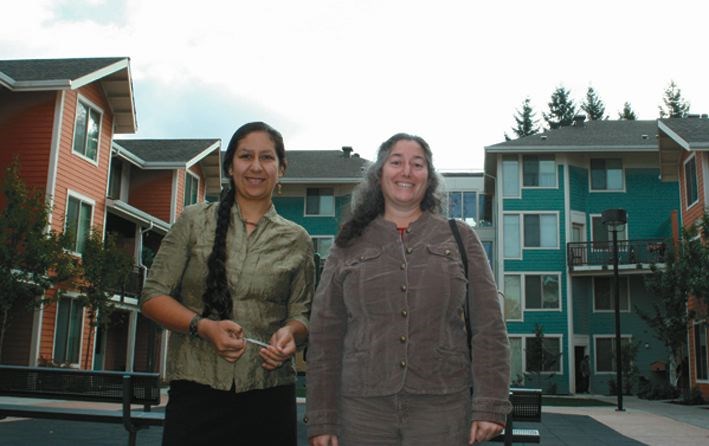Editor's note: A dozen people from Prince George, including city councillors and Citizen reporter Mark Nielsen went to Portland, Oregon in October 2008 to learn how that city was dealing with the homeless and downtown revitalization. With the city's downtown task force set to get to work in the new year, here are Mark's stories from that trip.
PORTLAND, ORE. -- As someone who's worked with the homeless for more than 20 years now, Erika Silver speaks in glowing terms about the city's Housing First strategy.
Rather than making housing the end-point, the approach emphasizes getting the homeless into stable accommodation and then providing the services to deal with their problems and make them productive members of society.
"It's just a better use of resources," said Silver, a program director at Human Solutions, a social agency about a 20-minute drive southwest of downtown Portland.
"Until somebody feels secure, knowing where they're going to sleep at night, knowing that they're going to have food, knowing that they're going to be warm, knowing that they can take a shower, knowing that they can do their laundry, it's really hard to think about anything else, like getting a job or maybe getting into mental health services or alcohol or drug treatment."
If there is a message Silver would like to send to the contingent from Prince George now in Portland to get a look at the strategy, it's that homelessness is not just a downtown problem -- families with young children make up a significant portion of people without a roof over their heads.
What's more, Silver believes Housing First is particularly well-adapted to meeting the needs of those families.
"One of the big things we find with families is that with kids, it's so traumatic for them to have to change schools," she said. 'If a family is homeless and if they're staying with maybe their auntie over here, their grandma over there, their friend or their cousin, and they're moving around ... everytime kids move they lose about three or four months academically.
"Think about it, different school, different teachers, different kids, different books, different classes, a whole different culture within that school, it's kind of hard. And when your family is homeless anyway, you don't feel that sense of security."
Like Silver, Andrea Pena has nothing but good things to say about the program, which she credits for getting her and her five-year-old son back on their feet after she resorted to sleeping in her car and in shelters to escape an abusive relationship about two-and-a-half years ago.
"It was affecting my son tremendously," she said. "He was having a hard time, like me."
From moving fees to rent to getting back into school -- and, of course, finding a home -- her needs were met through the program. Pena eventually landed a job as a receptionist at Human Solutions and has since been promoted and her son was enrolled in a Head Start program for children with emotional health issues.
"It helps you to be self sufficient, it helps you to build your self esteem," Pena said.
Human Solutions maintains about 540 units of affordable housing. Pride of place is Lincoln Woods, a combination of brightly-coloured vinyl-sided townhouses and apartments surrounding a spacious courtyard with a playground -- it looks a lot like the Elizabeth Fry complex next to Rainbow Park near Ospika and Fifth.
In the past, such projects have traditionally been aimed at those earning between 30 and 60 per cent of median income, Housing First concentrates on those in the 0 to 30 per cent range who otherwise would be languishing in shelters and under bridges and living from day-to-day.
Although it has met and exceeded targets -- housing for more than 15,000 people was found in two years -- but there's plenty of work left if the city hopes to meet its goal of ending homelessness in a decade. If Prince George was to do anything, Silver said, it should be to institute a Housing First program before things get out of hand.
"It's so much better and so much cheaper if you're able to, with families, stop them from becoming homeless to begin with," she said adding there are so many people, from seniors to singles, living from hand to mouth and just a paycheque away from ending up on the streets.
"There was a woman, she was working a job, she has three kids and she was managing just fine using her car to get back and forth to work and taking her kids to wherever they needed to be and then somebody steals her car, She reports it to police, she's able to get the car back the next day but she had to pay $291 to get the car out of the impound lot and then she could pay her rent," Silver said.
"We were so glad we were able to help her because for that little amount of money (she remained in a home)."

.png;w=120;h=80;mode=crop)

